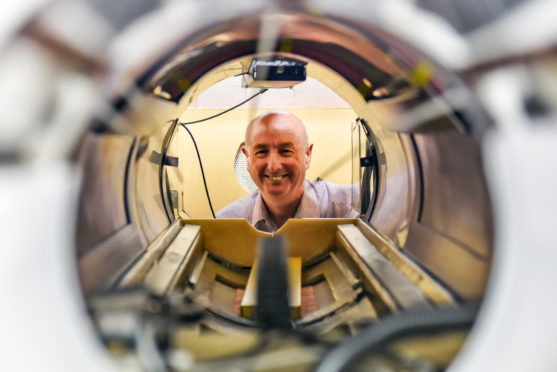Aberdeen University researchers pioneering a new type of MRI scanner hope it could speed up breast cancer treatment.
They are calling for north-east women to help test their new fast field-cycling MRI.
The machine works at low magnetic fields to reveal new information about the body’s tissues that is invisible to current medical scanners.
A stroke patient involved in earlier testing described the new scanner as “100 times better” than existing technology.
The scientists want to learn what normal breast tissue looks like in scans from the new machine – with interest particularly in how things change during the menstrual cycle.
It is hoped this will make it easier to spot early indicators of breast disease in the future, potentially allowing treatment to begin sooner.
But before this can happen, the scientists say they need a number of healthy female volunteers – aged 16 or older – to undergo three separate scans.
The FFC-MRI has been developed in part through a four year project led by Aberdeen University involving partners working at nine sites across Europe.
It was funded by a €6.6M EU grant.
Aberdeen has been at the forefront of magnetic resonance imaging since the 1970s.
The first-ever full-body MRI machine was developed in the city, and the first patient to be successfully scanned was from Fraserburgh.
The technology has since become a vital diagnostic tool in every major hospital around the world.
Potential participants can find out more about the new trial by e-mailing stacey.dawson@abdn.ac.uk.
